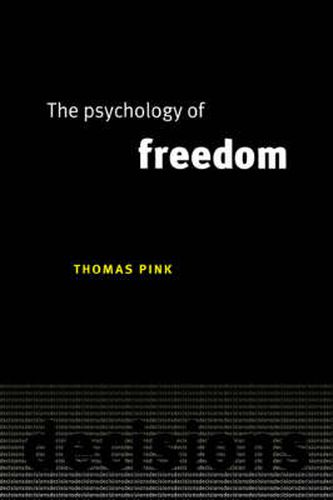Readings Newsletter
Become a Readings Member to make your shopping experience even easier.
Sign in or sign up for free!
You’re not far away from qualifying for FREE standard shipping within Australia
You’ve qualified for FREE standard shipping within Australia
The cart is loading…






This 1996 book presents an alternative theory of the will - of our capacity for decision making. The book argues that taking a decision to act is something we do, and do freely - as much an action as the actions which our decisions explain - and that our freedom of action depends on this capacity for free decision-making. But decision-making is no ordinary action. Decisions to act also have a special executive function, that of ensuring the rationality of the further actions which they explain. This executive function makes decision-making an action importantly unlike any other, with its own distinctive rationality. Pink’s highly persuasive study uses this theory of the will to provide accounts of freedom, action and rational choice. The author argues that, in a tradition that runs from Hobbes to Davidson and Frankfurt, Anglo-American philosophy has misrepresented the common-sense psychology of our freedom and action - a psychology which this book now presents and defends.
$9.00 standard shipping within Australia
FREE standard shipping within Australia for orders over $100.00
Express & International shipping calculated at checkout
This 1996 book presents an alternative theory of the will - of our capacity for decision making. The book argues that taking a decision to act is something we do, and do freely - as much an action as the actions which our decisions explain - and that our freedom of action depends on this capacity for free decision-making. But decision-making is no ordinary action. Decisions to act also have a special executive function, that of ensuring the rationality of the further actions which they explain. This executive function makes decision-making an action importantly unlike any other, with its own distinctive rationality. Pink’s highly persuasive study uses this theory of the will to provide accounts of freedom, action and rational choice. The author argues that, in a tradition that runs from Hobbes to Davidson and Frankfurt, Anglo-American philosophy has misrepresented the common-sense psychology of our freedom and action - a psychology which this book now presents and defends.